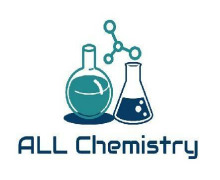Antibody-drug Conjugates Technology

At ALL Chemistry Inc., we are proud to offer our customers our state of the art Antibody-drug Conjugates technologies. We understand that each customer's needs are different and that is why we are committed to providing a tailored solution for each and every one.
Antibody-drug conjugates, or ADCs, are a type of targeted cancer therapy that combines the specificity of monoclonal antibodies with the potency of chemotherapy drugs. This innovative approach to cancer treatment has shown great promise in clinical trials, and is rapidly gaining attention from researchers and clinicians alike.
So how do ADCs work? The basic idea is to use an antibody to selectively target cancer cells, and then use a drug to kill them. The antibody is designed to recognize a specific protein on the surface of the cancer cell, which allows it to bind to that cell and deliver the drug directly to the tumor. This targeted approach minimizes damage to healthy cells and reduces side effects.
The drug component of the ADC is typically a potent cytotoxic agent that is too toxic to be used alone. By attaching the drug to the antibody, it is able to be delivered selectively to cancer cells, where it can then be released and cause cell death. This targeted delivery approach allows for a much lower dose of the drug to be used, while still achieving therapeutic efficacy.
One of the advantages of ADCs is their ability to target cancer cells that are difficult to treat with conventional chemotherapy. For example, some cancer cells may have developed resistance to chemotherapy drugs, making them difficult to kill. ADCs offer a new approach to these resistant cancer cells, as they are able to bypass the resistance mechanisms and directly target the cancer cells.
Another advantage of ADCs is their potential for combination therapy. ADCs can be combined with other cancer therapies, such as immunotherapy, to enhance their effectiveness. The targeted delivery of the drug by the antibody can also help to boost the immune response to the cancer, further enhancing the therapeutic effect.
Despite the promise of ADCs, there are still some challenges that need to be addressed. One of the main challenges is the stability of the conjugate. ADCs are complex molecules, and ensuring that the antibody, drug, and linker are all stable and remain intact during circulation in the body is crucial for their efficacy.
In conclusion, ADCs represent a promising new approach to cancer treatment that has the potential to revolutionize the field. Their targeted delivery of potent drugs to cancer cells offers a new way to treat difficult-to-treat cancers, and their potential for combination therapy opens up new avenues for treatment. While there are still some challenges to overcome, the future of ADCs looks bright.

Recently Visited
Position your company at the heart of the global Pharma industry with a CPHI Online membership
-
Your products and solutions visible to thousands of visitors within the largest Pharma marketplace
-
Generate high-quality, engaged leads for your business, all year round
-
Promote your business as the industry’s thought-leader by hosting your reports, brochures and videos within your profile
-
Your company’s profile boosted at all participating CPHI events
-
An easy-to-use platform with a detailed dashboard showing your leads and performance